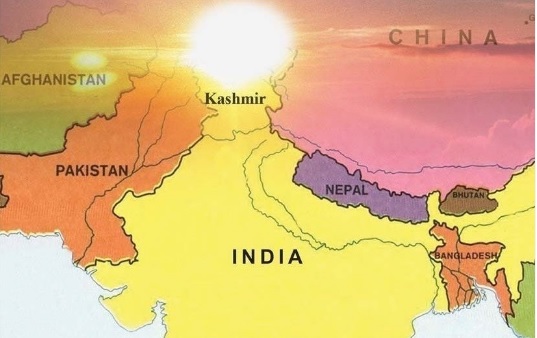Step Back from the Brink: UN Chief Urges India and Pakistan to De-escalate Tensions
Srinagar, May 5, 2025 – As tensions between India and Pakistan reach alarming levels following the April 22 Pahalgam terror attack, UN Secretary-General António Guterres has issued a strong appeal for restraint, warning that the situation could spiral into a military confrontation.
Speaking outside the UN Security Council (UNSC) headquarters in New York, Guterres expressed deep concern over the deteriorating relations between the two nuclear-armed neighbors, stating that tensions were at their highest in years. He reiterated his condemnation of the Pahalgam attack, which claimed 26 lives, mostly tourists, and called for those responsible to be brought to justice through credible and lawful means.
Diplomatic Efforts and UN Intervention
The UNSC convened closed-door consultations on the crisis following Pakistan’s request for an emergency meeting. Greece, which holds the presidency of the Council for May, scheduled the meeting to discuss the escalating situation.
Guterres emphasized that a military solution is no solution, urging both nations to step back from the brink and engage in diplomatic efforts to prevent further escalation. He offered the UN’s good offices to facilitate dialogue and de-escalation, reaffirming the organization’s commitment to peace and stability in the region.
India and Pakistan’s Responses
Indian Prime Minister Narendra Modi has granted the military “complete operational freedom” to respond to the attack, raising concerns about potential retaliatory strikes. Meanwhile, Pakistan has warned of a swift response to any aggression from New Delhi, further intensifying fears of conflict.
Pakistan’s Prime Minister Shehbaz Sharif welcomed Guterres’ call for de-escalation and reiterated his offer for an independent, transparent investigation into the Pahalgam incident. However, he also accused India of provocative rhetoric and war-mongering, urging international bodies to intervene before the situation worsens.
Global Reactions and Concerns
Several international players, including the United States, China, and the European Union, have urged both nations to exercise restraint and prioritize diplomatic solutions. The Indus Waters Treaty suspension, the closure of the Attari border crossing, and the downgrading of diplomatic ties have further strained relations between the two countries.
What’s Next?
With tensions at a boiling point, the world watches closely as India and Pakistan navigate this critical juncture. The UNSC’s closed-door discussions and potential diplomatic interventions may play a crucial role in preventing further escalation.
As Guterres aptly put it: “Now is the time for maximum restraint and stepping back from the brink.”



